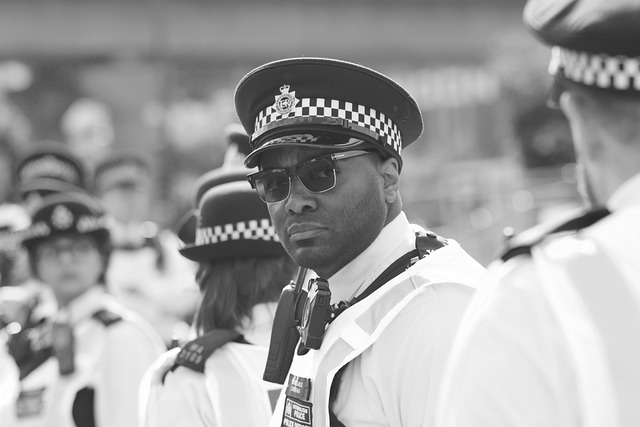Enforcing criminal law requires a delicate balance between protecting society and upholding defendants' rights. The process begins with investigations, where officers gather evidence guided by search warrants, leading to arrests and charges for alleged perpetrators facing violent offenses or complex economic crimes. Due process ensures legal representation and a fair trial, impacting the lives of those accused. Defendants' rights, guaranteed by the U.S. Constitution, are crucial in this landscape, with skilled attorneys advocating for clients through rigorous examination of evidence and strategic witness questioning. Procedural fairness guarantees equal treatment and protection, including access to counsel, presumption of innocence, and right against self-incrimination. Balancing accountability and defendants' rights remains a challenge, with legal reforms focusing on preserving these rights while navigating complex cases, ensuring public trust in the criminal justice system.
“Criminal law enforcement forms the cornerstone of societal justice, balancing public safety with individual rights. This article delves into the intricate world of criminal justice, exploring fundamental concepts like understanding criminal law and its legal landscape. We analyze defendants’ rights and protections, emphasizing procedural fairness for equal treatment. Furthermore, we discuss the challenges and innovations in balancing justice and accountability, focusing on defendant rights in criminal cases. By examining these aspects, we aim to shed light on the complexities and ongoing efforts to ensure a just criminal justice system.”
- Understanding Criminal Law Enforcement: A Foundation for Justice
- The Legal Landscape: Defendants' Rights and Protections
- Procedural Fairness: Ensuring Every Defendant's Equal Treatment
- Balancing Justice and Accountability: Challenges and Innovations in Defendant Rights
Understanding Criminal Law Enforcement: A Foundation for Justice

Understanding Criminal Law Enforcement is pivotal to upholding justice. At its core, it involves a delicate balance between protecting society and ensuring defendants’ rights in criminal cases. The process begins with investigations where law enforcement officers, armed with search warrants and legal authority, gather evidence to build a case against alleged perpetrators. This critical phase demands a meticulous approach, as the quality of evidence directly impacts the outcome of high-stakes cases across the country.
Once sufficient proof is established, defendants are arrested and charged with crimes that can range from violent offenses to complex white collar and economic crimes. Throughout this journey, individuals accused of wrongdoing must be afforded their due process rights, including the right to legal representation, a fair trial, and protection from excessive punishment. Effective criminal law enforcement, therefore, requires a comprehensive understanding of both the law and the rights of those it seeks to protect.
The Legal Landscape: Defendants' Rights and Protections

In criminal law enforcement, understanding the legal landscape is paramount. At its core, this involves recognizing and upholding the rights and protections afforded to defendants in criminal cases. The U.S. Constitution guarantees a variety of rights to those accused of crimes, including the right to due process, the right against self-incrimination, and the right to a fair trial. These provisions ensure that individuals are treated justly within the legal system and have the opportunity to present a winning challenging defense verdict in their favor.
Advocates for corporate and individual clients alike play a crucial role in navigating this landscape. Skilled attorneys dedicate themselves to protecting these rights, ensuring that their clients receive fair treatment throughout the entire process. By thoroughly examining evidence, presenting compelling arguments, and strategically cross-examining witnesses, they strive to secure the best possible outcomes for their clients, be it through plea bargains or acquittals where verdicts are in their favor.
Procedural Fairness: Ensuring Every Defendant's Equal Treatment

In criminal law enforcement, procedural fairness is a cornerstone ensuring that every defendant is treated equally and afforded their fundamental rights. This principle dictates that the legal process must be just and impartial, from the initial arrest to the final verdict. It involves a range of measures aimed at protecting defendants’ due process, including the right to counsel, the presumption of innocence, and the guarantee against self-incrimination.
A key aspect of procedural fairness is ensuring a defendant has access to competent legal representation throughout their criminal case. This includes the opportunity for a jury trial where evidence is presented openly and the defendant can mount a winning challenging defense verdict. Moreover, the right to a complete dismissal of all charges acts as a safeguard against wrongful convictions, upholding the integrity of the justice system.
Balancing Justice and Accountability: Challenges and Innovations in Defendant Rights

In the pursuit of justice, balancing accountability with defendant rights presents a constant challenge in criminal law enforcement. As high-stakes cases, particularly those involving white collar and economic crimes, become more prevalent, ensuring procedural fairness remains paramount. Innovations in legal representation, such as enhanced access to counsel and specialized defense strategies, aim to safeguard defendants’ constitutional rights while navigating complex legal landscapes. These advancements are crucial for maintaining a just system, especially in unprecedented track records of prosecution where accurate representation can significantly impact outcomes.
The delicate nature of criminal proceedings demands a nuanced approach when considering defendant rights. Legal reforms often focus on preserving the presumption of innocence, ensuring robust cross-examination, and protecting against self-incrimination. By reinforcing these fundamental principles, the justice system strives to uphold not only accountability but also the integrity of its processes. This dual pursuit is essential for fostering public trust and maintaining a fair criminal justice system.
In exploring criminal law enforcement, from its foundational principles to modern challenges, it’s evident that safeguarding defendants’ rights in criminal cases is paramount for a just and equitable legal system. Ensuring procedural fairness and balancing justice with accountability are vital aspects that require continuous evaluation and innovation. Understanding the complex interplay between these elements fosters a more balanced approach to law enforcement, ultimately strengthening the integrity of our justice system.






